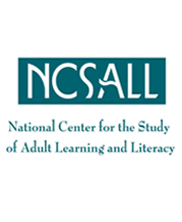While the majority of adults who take the General Educational Development (GED) test do so in order to continue their education, few go on to enter postsecondary education (Tyler, 2001). Yet, these same adults stand to make substantial economic and personal gains when they use their adult secondary credential to move from the ranks of high school dropout to postsecondary graduate, with the possibility of going from low-wage jobs to careers with a livable wage and benefits. Unlike transition services for high school graduates, which are well-established, the transformation of adult basic education (ABE) programs to include transition services for adults is an emerging area of concern for the field of adult education (Office of Vocational and Adult Education, 2004). Identifying adult education models that help adult learners avoid cycles of remediation at the beginning of their college careers is more likely to produce students who can persist and obtain a postsecondary education credential.
In the first five years of adult transition work done by staff at the New England Literacy Resource Center (NELRC) at World Education, Inc., the team noticed distinct models emerging in the field. To capture and categorize these models, NELRC surveyed adult education centers with transition components from around the United States, guided by the question: Do ABE-to-college transition programs fall into discrete models and, if so, what are the key features of these models? Through the development of program snapshots and four state profiles, the team discovered commonalities, allowing for an extension of an earlier typology of adult transition programs (Alamprese, 2004) now to include five models: Advising, GED-Plus, ESOL, Career Pathways, and College Preparatory. In addition, analysis of the aggregated data produced a series of themes and recommendations that other states contemplating adult transition services might find helpful.


